My time at Orion Magazine's 2025 Environmental Writers' Summer Workshop
What was initially intimidating quickly became one of the most affirming experiences of my life.
You’re reading Creativity Under Capitalism, a free biweekly newsletter about reclaiming and sustaining creative joy under tricky socioeconomic circumstances. I’m Adrianna, a journalist and creative writer based in Phoenix, AZ.
If you’re just getting settled in, check out previous issues of Creativity Under Capitalism—and if you like what you see, consider leaving a comment or buying me a coffee to make my day!
Two weeks ago, I boarded a plane and embarked on an experience wholly new to me. New destination. New people. New activities. New intentions.
It was Orion’s 2025 Environmental Writer’s Summer Workshop. That’s a mouthful, so I’ll translate: Orion, a 43-year-old print and online magazine dedicated to thoughtful science and culture writing, was hosting a week-long workshop designed by and for environmental writers in Rhinebeck, NY. Having never been to upstate New York—and weeks before starting the job that would cement my role as an “environmental writer”—I applied, and to my delight, I was accepted.
The premise was that roughly 80 writers and 10 faculty would convene at Omega Institute, a sprawling “holistic studies and educational retreat center” in rural Rhinebeck. When we arrived, we’d be assigned a cabin (or a tent campsite, if we felt like saving some money) and then launch into five straight days of writing, talking about writing, learning about writing, and otherwise thinking about little beyond the world of writing. Orion’s editors would be there, as would the authors and poets responsible for guiding our workshop-slash-retreat.
I’ll openly admit that I went into this experience with a burned-out and slightly selfish state of mind. I’d been overcommitting and undernourishing myself for a long time, and I was eager to turn off my phone and tuck into my journal/Word doc/library books for a week, inaccessible to colleagues and friends alike. I packed too many novels and poetry books, bought Brick (review forthcoming!), and told everyone in my life in no uncertain terms not to contact me unless there was a true emergency. After all, this whole experience was going to cost me nearly $4,0001 after the workshop, lodging, and flights were factored in, and I was not interested in squandering that cash by looking at my phone all week.
Desperate to refill my long-dead social battery, I even set out to avoid my fellow workshop attendees. But that’s not what I did, in the end. (I probably couldn’t have, even if I’d tried.) Instead, I had one of the most lovely, informative, and affirming social experiences of my life.
The structure
About a month before we were due to meet in Rhinebeck, we workshop attendees were invited to choose a faculty member from a list on Orion’s website. This is the person who would lead our morning workshops before all of us convened in a large room each afternoon for talks, panel interviews, and readings from faculty and visiting authors.
I originally chose Sabrina Imbler, author of How Far the Light Reaches, because I, too, love to write about wildlife. When Orion announced that Imbler would no longer make it to the workshop, I chose creative nonfiction author and poet Alison Hawthorne Deming, because she lives in Tucson, AZ and I didn’t want to be stuck with someone who didn’t appreciate the desert.2
Though I’m sure Imbler would have been lovely, I’m very glad it worked out this way. Deming is a firecracker, and her decades of experience writing about ecosystems and communities in the Southwest and the Northeast made her brain an incredibly knowledgeable one to pick. Each morning at 9 AM, Deming gathered my 12-person group on the second floor of Omega’s lovely library, where we discussed the challenges, delights, and responsibilities of environmental writing (and read a few sample texts) before we all headed to the dining hall for lunch. (Did I mention that Omega cooked breakfast, lunch, and dinner for us every single day? The dishes were largely vegetarian, so I ate a lot of legumes that week, but the dining hall was such a gift.)
After lunch, we usually had a couple hours of free time. Some folks used this to nap, meditate, call their kids, or go for a jog; I used it to kayak, read, and write. (More on this later!)
In the late afternoons, we sat for Q&As and panel interviews with authors, poets, and publishing industry experts. Rob Spillman, cofounder of Tin House, talked about establishing authority on the page, while literary agent Renee Zuckerbrot, former Graywolf Press director and editor Fiona McCrae, and Orion editor-in-chief Tajja Isen discussed pitching and submitting creative work. I took a lot of notes.
After dinner, we returned to the same building for readings. Faculty read from their current and past works for the first two nights, while students read during the other two. When this was over, it was about 9 PM, and most of us were tired enough to head back to our cabins and crash before doing it all over again.
The place
I’m a desert lover through and through, but I think that only made Rhinebeck—and Omega, by extension—even more special. I hadn’t been somewhere so utterly green in a long time, and while I’ll be the first to tell you that so-called “green spaces” aren’t the only natural spaces that matter, this change in environment was really nice. I also have to admit that it was incredible to exist outside in June without immediately searching for the nearest air conditioned building (though I maintain that humidity, which I eventually experienced, is uglier than Phoenix’s dry heat).
Omega is big on helping visitors connect with their bodies and with nature. There are free yoga, tai chi, and meditation classes every day; visitors can book spa services at the wellness center (for a fee); the campus is an entanglement of hiking trails; and the institute shares a lake with a few nearby residential properties. One day, I spent an afternoon kayaking—an absolutely idyllic experience that I will remember fondly for the rest of my life. I saw lily pads IRL for the first time, plus a snapping turtle and a handful of adorable birds. As I paddled back to shore, I heard music, and I thought someone had turned on a speaker. Nope—it was a man singing and playing the acoustic guitar on the beach. I joined him and a few listeners for a while, more relaxed than I’d been in weeks.
There was no shortage of gorgeous places to write on campus. Before dinner one evening, I wrote in front of the lake; during a rainy afternoon, I wrote from a window seat at the cafe. A central garden offered a sweet place to read, as did a little nook in the library. This was a relief, as I often found myself needing space to recover after spending a few hours in a highly social environment.
The opportunities
This is where my attempts to describe my experience turn into word salad.
As I mentioned before, I went into Orion’s 2025 Environmental Writers’ Workshop intending to write solo, learn solo, and explore solo. I wasn’t necessarily there to make friends; I just wanted time away to connect with nature and improve my craft. And while I did manage to do those things, I also did so much more.
Every single writer I met at this workshop, whether in “class” or during meals, was kind, curious, and interesting to talk to. Every single writer inspired me in some way—by sharing their life story, or by explaining the way they went about their work, or by simply observing the world in a way I’d never considered before. And every writer held some sort of precious talent, no matter how old they were or how they’d been educated or whether they’d been published or what they read for fun or what they did for a living.
Despite my initial interest in enjoying my own company, I found myself pulled to the writers around me. We talked about how Philadelphia’s human and more-than-human communities learned to manage the city’s sudden influx of spotted lanternflies a few years back. We vented about how difficult it was to convey hope to an audience convinced that the world is beyond saving. Mostly, though, we lifted each other up, offering the kind of thoughtful encouragement you know isn’t just made of platitudes.
I don’t know if I can explain how the togetherness I witnessed (and hopefully helped to facilitate, in some small way) at this workshop soothed my soul and reinforced my relationship with writing. At first, being surrounded by so many writers with more life and professional experience intimidated me, and I worried I wouldn’t measure up. But I quickly learned that it wasn’t about that. We were all there for the same reason: to crystallize our love for the planet via writing. And each of us had a very rich corner of planet to share.
This realization culminated with our last two nights on campus, during which students were invited up to the microphone to read up to 3 minutes of their work. I have published hundreds of articles as a journalist, but my creative writing is still something deeply personal and difficult to share with others—especially in person. But I signed up, convinced it would be a good exposure exercise for my social anxiety.
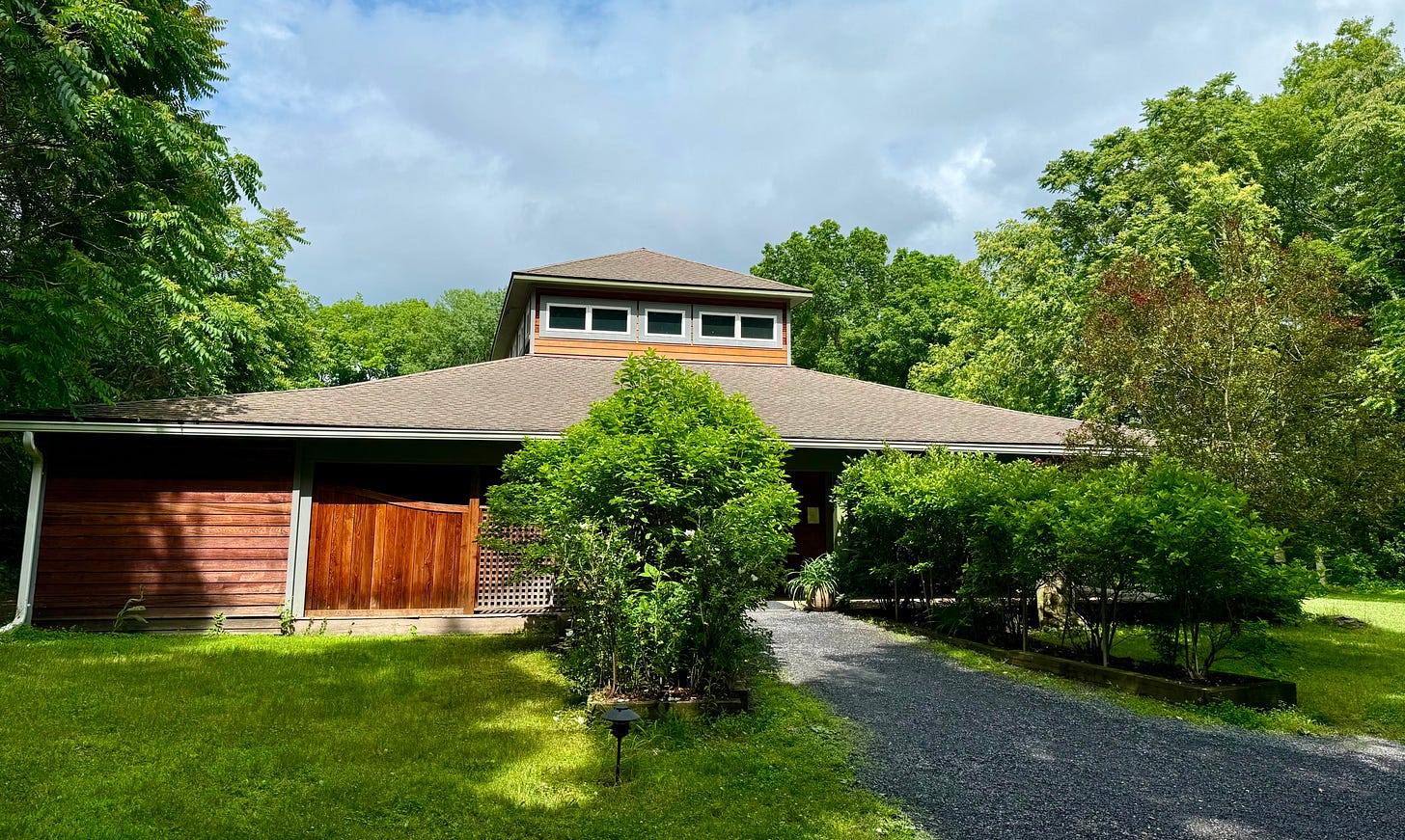
The talent my fellow writers displayed behind the mic was incredible. There were so many poems and excerpts of larger works that I wished (and still wish) I could hear again. By Thursday night—the second night—I was terrified that whatever I shared wouldn’t be nearly as impressive as everyone else’s work. I know I’m a good writer, but these were great writers. Was this even worth doing?
I almost backed out. Orion digital editor Kathleen Yale was calling out writers’ names in the order they’d signed up, and I nearly ran up to ask that my name be scratched off. I was sweating. All week, people around me had been flapping their hands at their faces, asking Is anyone else a little warm? while my Southwest sensibilities reminded me that 75 degrees was a little chilly. But now, I was burning. I sipped at an icy blackcurrant spritz I’d bought from a local aperitif maker, desperate for its 4% ABV to numb me just a little. And then my name was called, and there was no turning back.
I’d flipped back and forth between a few pieces I could read from, ultimately landing on the beginning of a personal essay about my family’s 60-year-old Meyer lemon tree. I felt wobbly as I read the first few sentences. But then I started to pick up on the audience’s response to my work. There were giggles when I described my eccentric Mexican grandmother, hums of resonance when I mentioned how my dad and I had grown apart. I’d never experienced the gift of people responding in real-time to my work before, and it was…fun?!
Afterward, people shared the sweetest compliments. I have no way of knowing whether they dished these out because they truly enjoyed the work or because they (just as kindly) wanted to assuage my anxiety, but either way, I felt showered with encouragement. It made me want to bolster my fellow writers in the same way—something I’d been trying to do all week, but could always gussy up a little—as well as to read for an audience again.
It feels a little silly to say that my biggest takeaways from Orion’s 2025 Environmental Writers’ Summer Workshop came from simply being with other writers. To be sure, there were lots of other opportunities that made this workshop worthwhile and them some: my 30-minute private conference with Deming, which reinvigorated my excitement around a book I’m writing; the texts we read in workshop, which helped me think about structure in a new way; learning about local wildlife from birders and folks who had lived in the Northeast all their lives. But when I remember this experience, community will always be at the forefront of that memory.
If you want to apply…
According to Submittable, I applied for this workshop on Feb. 27, so I’d expect Orion to open up for 2026 applications around the same time next year. I was accepted about a week later; I believe Orion reviews applications on a rolling basis until slots have been filled. You might want to keep an eye on this webpage, which I’m sure will be updated whenever next year’s dates are solidified.
What’s been inspiring me lately:
✰ All of the above, obviously.
✰ Ella Minnow Pea, an epistolary novel by Mark Dunn. This is a super cute and funny read, but it tackles the increasingly relevant issue of censorship—specifically, how a small, powerful group can eliminate the language we use to connect in the name of righteousness.
✰ Cole Noble’s thoughtful writeup of what’s true (and what isn’t) about the federal land sale that’s been rocking our news cycle for the past couple weeks. He does an excellent job of separating the real meat of the issue from misinformation, and (IMO) he demonstrates how this truly isn’t a partisan issue—it’s a capitalist issue. Give it a read, especially if recent headlines have left your head spinning.
I mention this so that you, too, know what it costs if you’re interested in attending—not as a “Look at me, able to afford this!” (I saved up for it, and because I’m a freelance writer, it’s a tax write-off. 😉) You could probably save $1,000 or so by camping instead of staying in a cabin, if that’s something you’re comfortable with.
These people are real, and they bum me out.



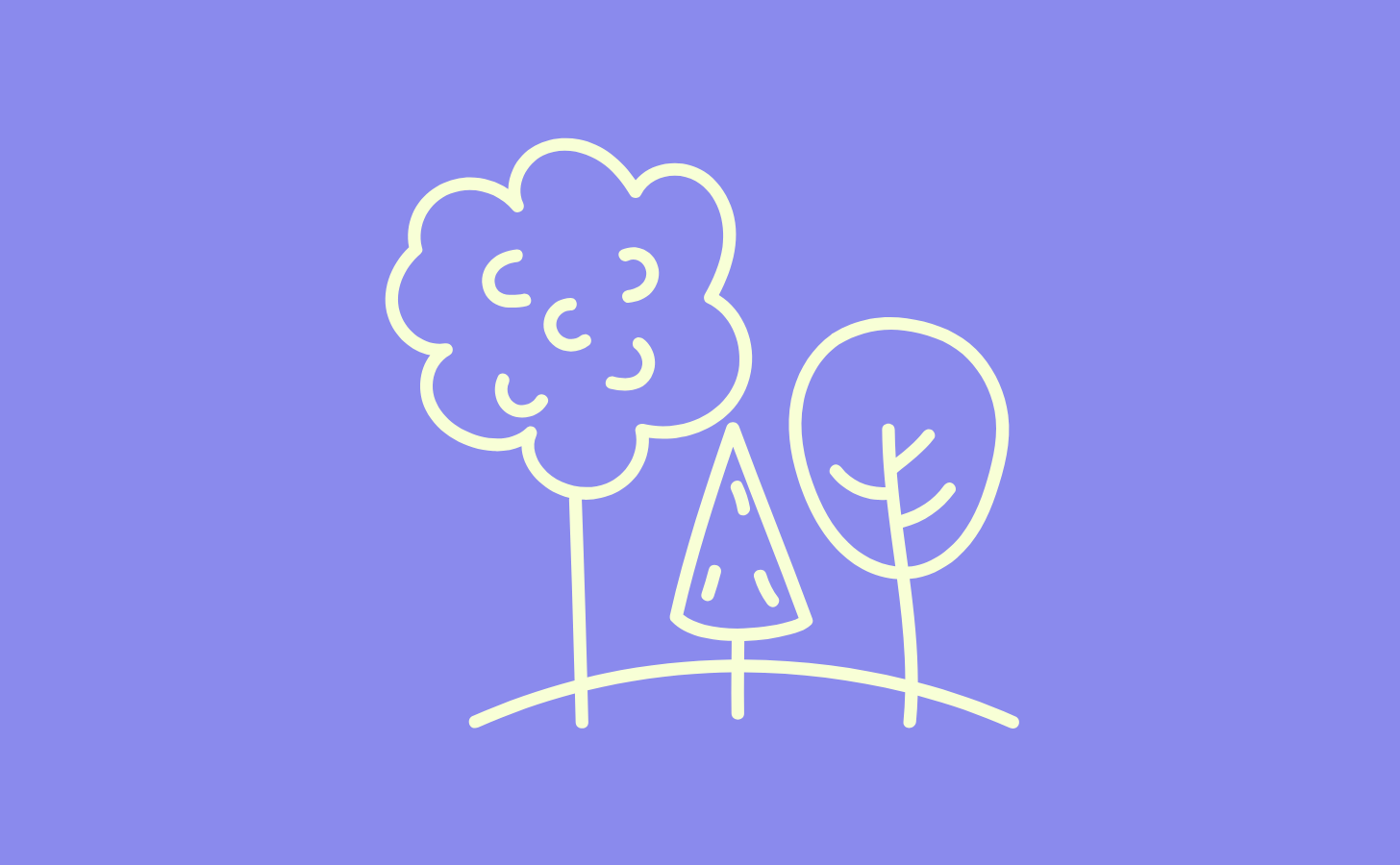
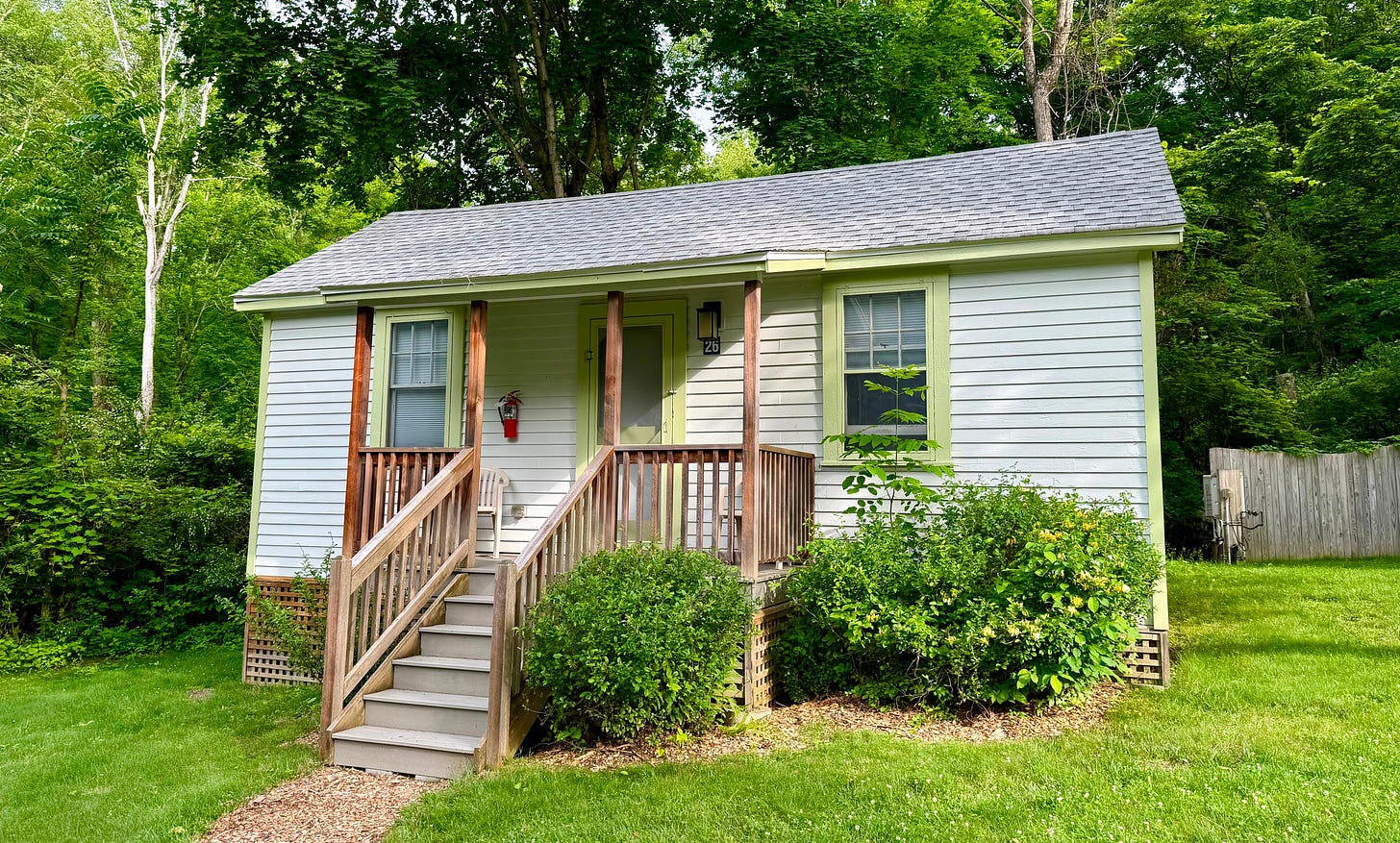
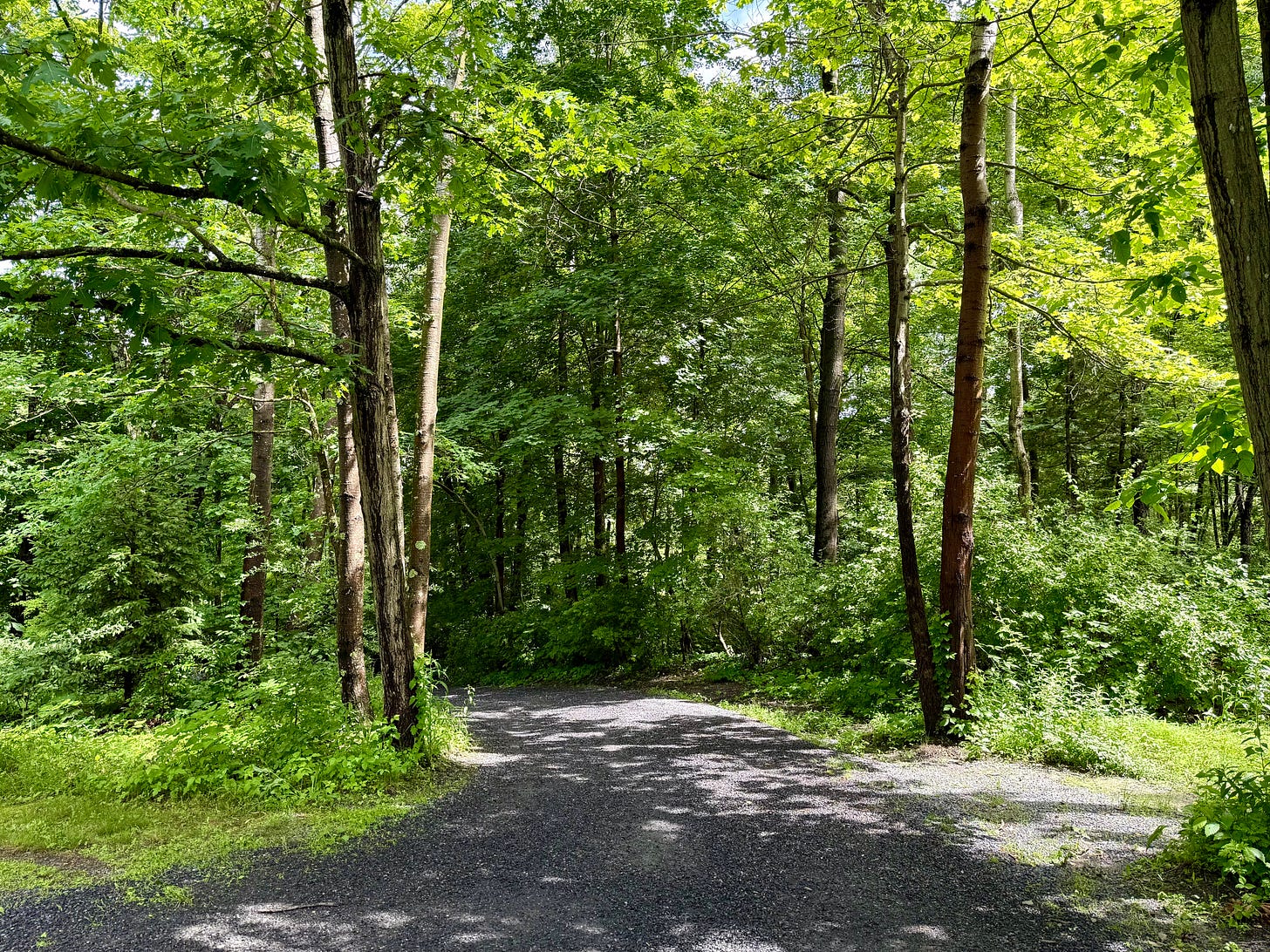
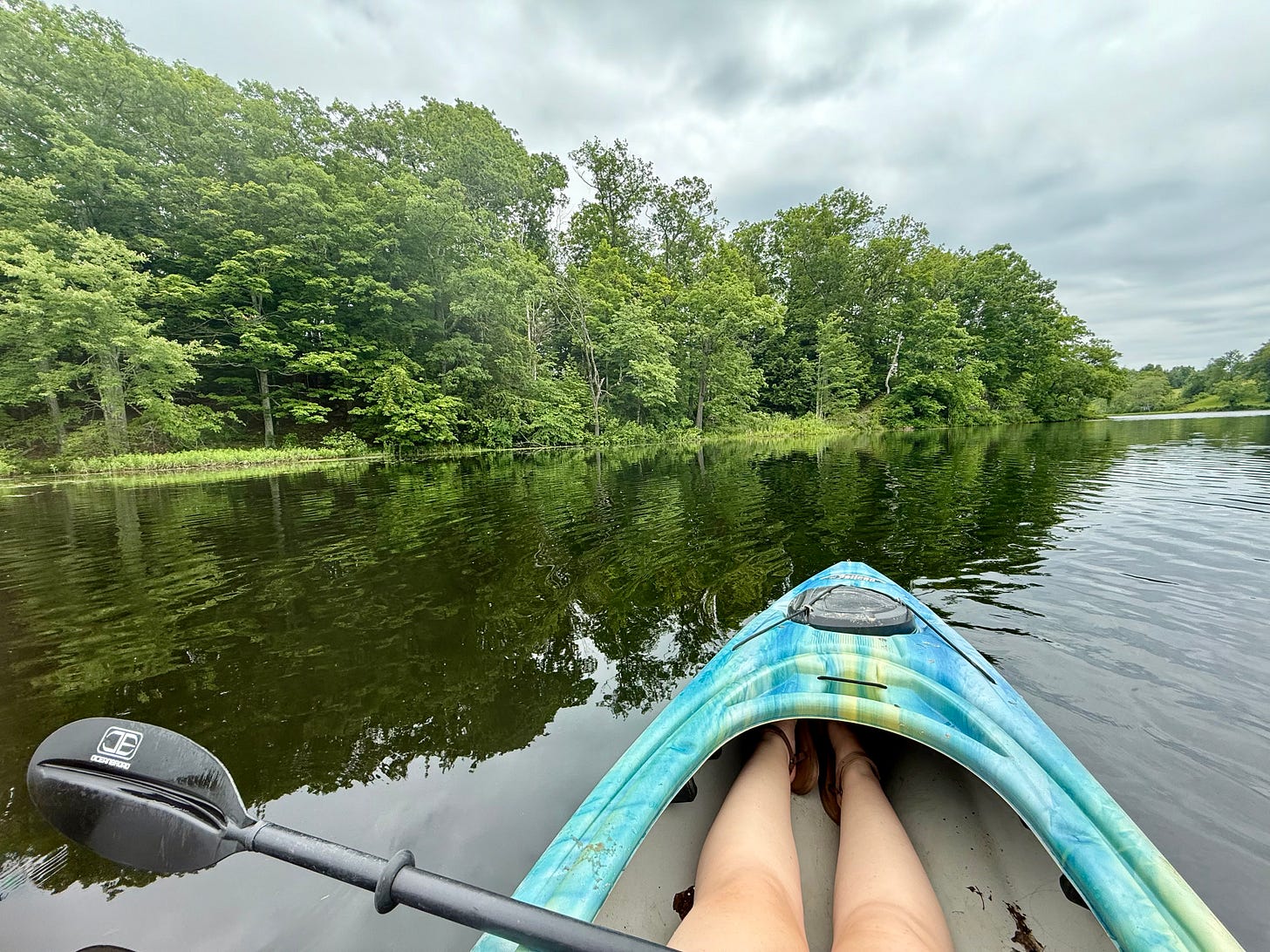
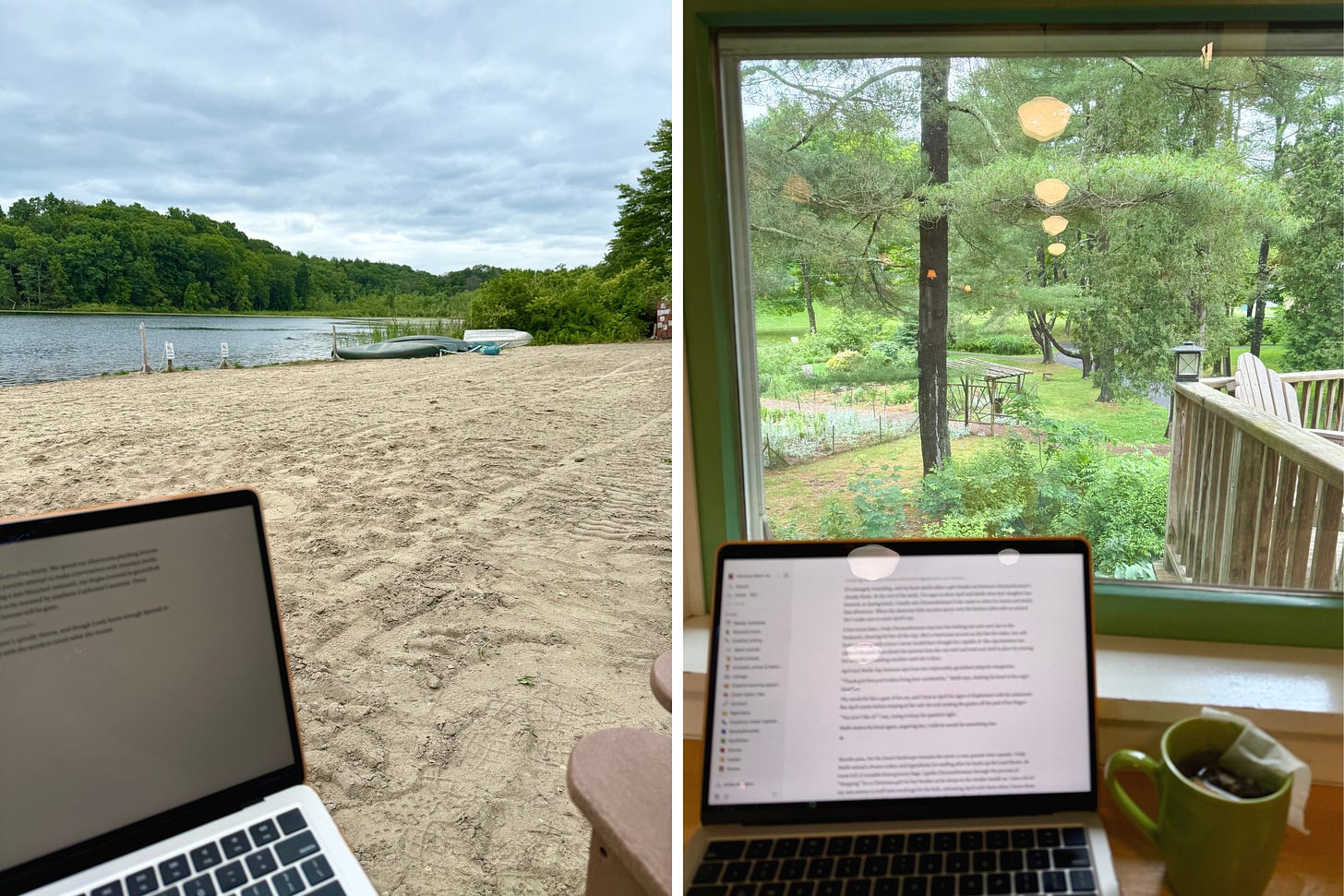

I love that the trip went so well and that you got to be surrounded by good, creative people. Also excited for your book, as always.
Sounds totally idyllic, honestly! And like you made the most of it!